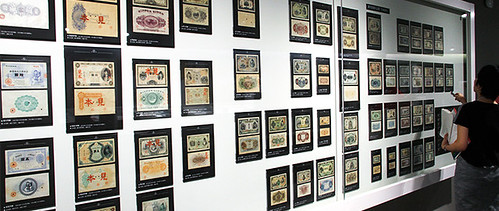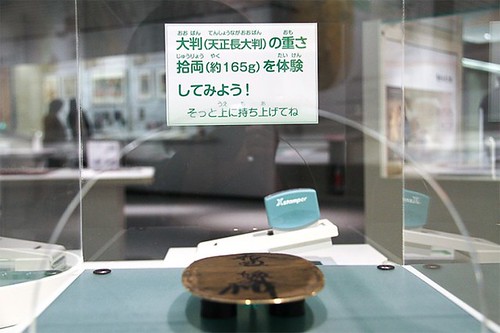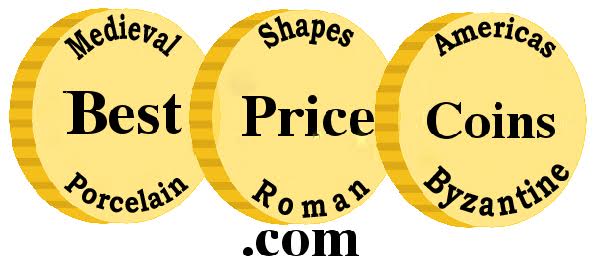
PREV ARTICLE
NEXT ARTICLE
FULL ISSUE
PREV FULL ISSUE
THE BANK OF JAPAN’S CURRENCY MUSEUMThis article is a nice overview of the Bank of Japan’s Currency Museum. -Editor
 From bolts of cloth to shimmering golden discs, from bags of rice to ingots of silver, currency has taken on many forms through Japan’s history. And as modern society moves increasingly to credit cards and electronic payments, it is good that a museum in Tokyo has been created to record the history of physical money. The Currency Museum, which is part of the Bank of Japan’s Institute for Monetary and Economic Studies, was opened in 1985 as part of the commemorative events to mark the central bank’s 100th anniversary three years previously. Its aim is to collect, preserve, and study historically important currency-related materials, with an emphasis on Japanese money. The basis of the museum’s exhibition is the Sempeikan Collection, which was gathered over many decades by renowned numismatist Tanaka Keibun (1884–1956). Tanaka collected historically important examples of currency from Japan and across East Asia, with a particular emphasis on China. The collection was held at the Sempeikan museum, but was donated to the Bank of Japan in 1944 toward the closing days of World War II to ensure its safety. The museum occupies part of the bank’s premises in the Nihonbashi district of Tokyo, the same spot where the kinza, or gold mint, stood in the Edo period (1603–1867). Here gold coins were created until the closing days of the shogunate. Not far away is the Ginza district, which takes its name from the mint for silver coins established here in 1612, but is today the city’s swankest shopping area.  The museum has several excellent examples of gold ingots that were used as currency, along with oval gold coins known as oban—larger than a man’s hand and worth seven of the smaller oval coins, koban, that are larger than a man’s hand. It also displays stamped gold ingots that were produced in the sixteenth and seventeenth centuries, each of which is about 95% pure gold and weighs some 375 grams.  To read the complete article, see: Wayne Homren, Editor The Numismatic Bibliomania Society is a non-profit organization promoting numismatic literature. See our web site at coinbooks.org. To submit items for publication in The E-Sylum, write to the Editor at this address: whomren@gmail.com To subscribe go to: https://my.binhost.com/lists/listinfo/esylum All Rights Reserved. NBS Home Page Contact the NBS webmaster 
|
